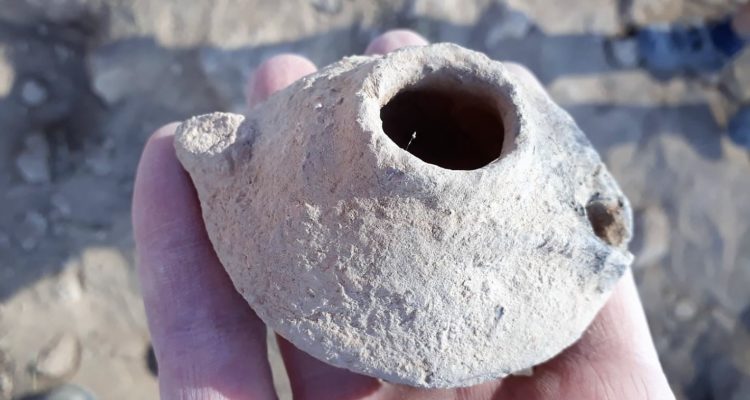Ancient Susya is home to a magnificent synagogue from the Talmudic period, houses, dwelling caves, and an escape cave.
By TPS
Just before Chanukah, school students from Susya, in the Hebron hills, found a unique oil lamp that was used to illuminate the nights of the ancient Jewish inhabitants of the town.
Susya School students set out as part of the curriculum to take part in the archeological excavations at the Ancient Susya site. The educational excavations are being conducted in one of the residences in the ancient site. Students uncovered a small oil lamp from about 700 years ago. Such lamps were used to light Chanukah candles, Shabbat candles and to illuminate the house. Wax candles were not used at that time.
Ancient Susya is home to a magnificent synagogue from the Talmudic period, houses, dwelling caves, and an escape cave. The place had a thriving Jewish community between the Second Temple period until about 1,000 years ago, a millennia-long existence.
Yochai Damari, head of the Mount Hebron Regional Council, stated that “the archeological site in Susya symbolizes Jewish history in the land of the Bible. The find is very moving and its discovery just before Chanukah is amazing. We are investing great resources in our historical past, for the education of our children, and for our future in this charming region of the country.”
Director of the excavations Achiya Cohen-Tavor recounted that “it was a really exciting find. One of the children suddenly yelled that he had found something – and when he showed me the lamp I realized that there was a unique find here. The candle is intact, a rather rare phenomenon.”
“The children can see with their own eyes how our ancestors lit candles – on Chanukah, on Shabbat, and on special days. The candle is dated to the last stage of life in ancient Susya, about 700 years ago. It was a period characterized by temporary residence, on top of the city buildings that has already peaked.”





